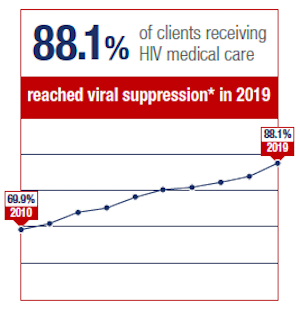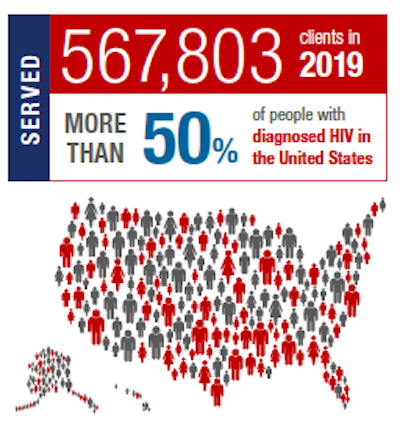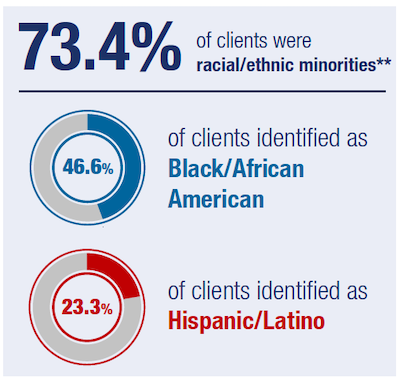
Cross-post from HIV.gov - HRSA Announces Record High HIV Viral Suppression Rate in New 2019 Ryan White HIV/AIDS Program Client-Level Data Report, by Laura Cheever, MD, ScM
A new report released this week [December 7, 2020] by the Health Resources and Services Administration (HRSA) shows that clients receiving Ryan White HIV/AIDS Program (RWHAP) medical care were virally suppressed at a record level – 88.1 percent – in 2019. High rates of viral suppression means that more people with HIV are taking their medication as prescribed and reaching and maintaining an undetectable viral load, and therefore they have effectively no risk of sexually transmitting the virus to an HIV-negative partner.
Led by HRSA's HIV/AIDS Bureau (HAB), the 2019 RWHAP Annual Client-Level Data Report is the sixth annual publication of national client-level data from the Ryan White HIV/AIDS Program Services Report (RSR). The RSR is HRSA’s primary source of annual, client-level data reported by more than 2,000 funded RWHAP grant recipients and subrecipients across the United States.
The publication provides an in-depth look at demographic and socioeconomic factors among clients served, which include:
- Age
- Race/ethnicity
- Transmission category
- Federal poverty level
- Health care coverage
- Housing status
In addition, retention in care and viral suppression data are presented for the overall RWHAP client population receiving medical care, as well as among priority populations served by the RWHAP. Together, these data highlight the key role of the RWHAP in providing high-quality care and treatment to more than half a million people with HIV in the U.S. each year and emphasizes the importance of continuing and expanding this work for the Ending the HIV Epidemic: A Plan for America (EHE) initiative.
For three decades, HRSA's RWHAP has funded grants to cities, counties, states, and local community-based organizations and clinics to provide a comprehensive system of HIV primary medical care, essential support services, and medications for low-income people with HIV. The report shows the following highlights:
- In 2019, approximately 567,000 individuals received at least one RWHAP-funded service, 98% (556,000) of whom were people with HIV. This means that more than half of people with diagnosed HIV in the United States received services through the RWHAP last year.
- 88.1 percent of RWHAP clients receiving HIV medical care were virally suppressed in 2019, which is an increase from 69.5 percent in 2010. This exceeds the national viral suppression average of 64.7 percent among all people with diagnosed HIV, as reported by the Centers for Disease Control and Prevention.

